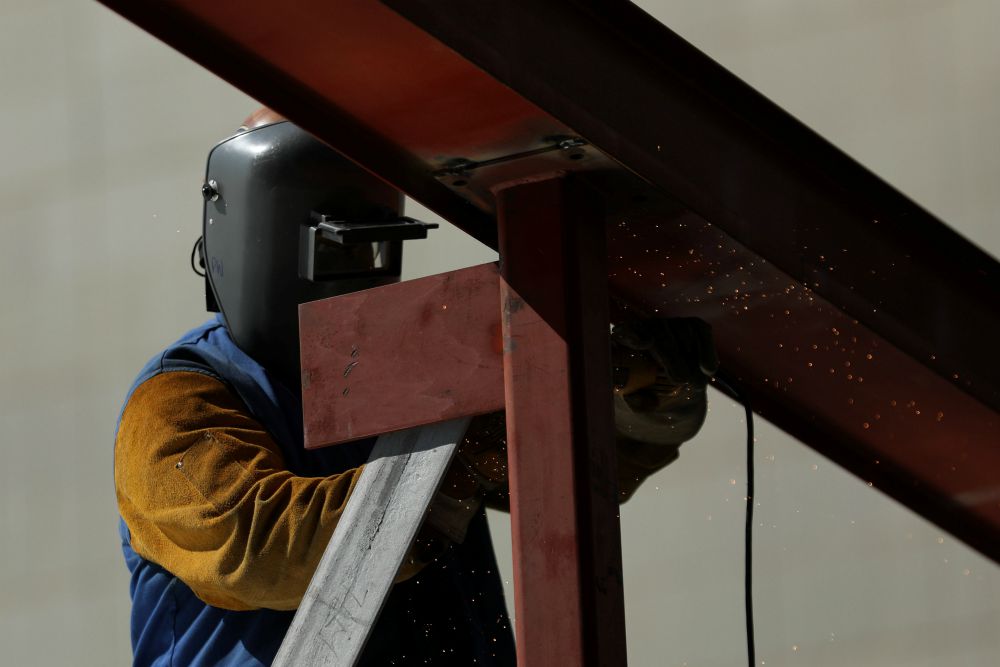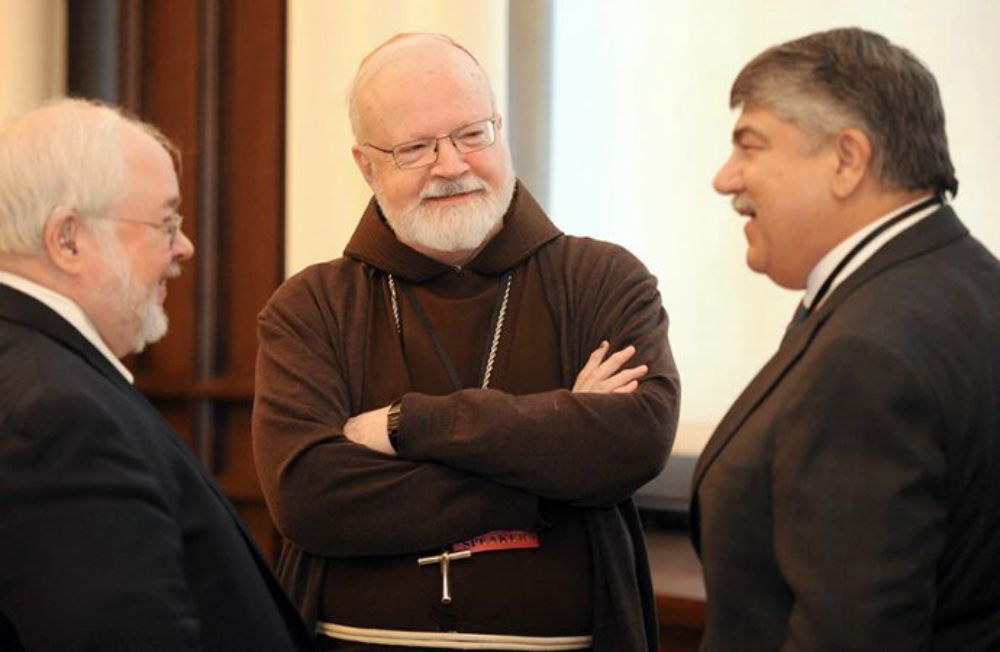
A worker uses a grinder on a metal beam Aug. 10 at a construction site in Los Angeles. (CNS/Mike Blake, Reuters)
Today is Labor Day. Issues related to labor are frequently addressed here at Distinctly Catholic because, as I have noted before, I cannot think of a single thing that would improve the quality of American democracy — and society — than to have a stronger labor movement. As well, it is one of the glories of Catholic social teaching that we have always recognized the priority of labor over capital in assessing social relations.
The labor movement has stood foursquare behind the cause of undocumented immigrants in recent years, even though few of those immigrants are members of a union. The labor movement has led the charge for an increase in the minimum wage, even though most minimum wage workers do not belong to unions. The labor movement has led the charge for fair trade agreements, but not with the faux nationalism of President Donald Trump. Organized labor, instead, is mindful that most trade agreements run to hundreds of pages because they are jam-packed with goodies for multinational corporations; the agreements also include insuperable barriers to workers in poor countries who seek to vindicate their rights, such as requiring any labor disputes be settled in U.S. courts where the multinational corporations can bring powerful legal resources to bear. Workers in Honduras or Vietnam do not have access to any blue chip law firms.
Advertisement
This summer I have been made existentially aware of another cause long championed by labor: opposition to any effort to raise the retirement age. You see, this summer I have set about the task of reclaiming my mother's once beautiful gardens from the brush that had overtaken them. Each morning, I head out with my pick and my shovel and dig up bittersweet, poison ivy, wild raspberries and wild roses. This being New England, I have spent a lot of time digging up rocks. I can only dedicate about an hour and a half to this work, given my other work obligations, but also because it is backbreaking.
The people who vote on proposals to raise the retirement age, like the advocates at think tanks who debate them and the reporters and pundits who write about them, all work at their desks. So do I. But all should be made to work a 40-hour week of manual labor before opining or advocating or voting on this subject. Then tell us people should not resent being expected to work another two years in order to collect Social Security.
Video of farm workers in Immokalee, Florida, planting tomato seedlings using a machine whose accuracy they monitor and correct (Global Sisters Report)
Earlier this summer, our wonderful Holy Father addressed a meeting of trade unions in Italy. I wrote about it here. There is one quote that jumped out at me then and still does: "The capitalism of our time does not understand the value of the trade union, because it has forgotten the social nature of the economy, of the business," the Holy Father said. "This is one of the greatest sins. Market economy: no. Let us say, social market economy, as St. John Paul II taught: social market economy. The economy has forgotten the social nature that it has as a vocation, the social nature of business, of life, of bonds and pacts."
The market economy speaks of shareholder value. The social market economy speaks of stakeholder value. The market economy thrives on financial speculation. The social market economy thrives on the dignity of work. The market economy doesn't care about work conditions, only profit. The social market economy respects workers. The market economy disrupts communities. The social market economy values communities. America, today, has a market economy, and unless we fashion a social market economy, our society will continue to be torn apart by income inequality and other pathologies.

Cardinal Sean O'Malley, center, speaks with President of the AFL-CIO Richard Trumka, right, during the Erroneous Autonomy conference in Washington, D.C, on Jan. 10, 2017. (RNS/courtesy of The Catholic University of America/Dana Rene Bowler)
But perhaps today is not the time for heady thoughts. Today is a day of rest and a day to honor workers. So, either today or sometime this week, as you go through your day, think about the workers with whom you interact, seen and unseen. Think about the housekeeper at your hotel room, who spends her day making other people's beds, picking up other people's garbage, and cleaning other people's toilets. Think about the farm workers who picked the tomatoes in your salad or tended the cows that went into your hamburger. Think of the road crews that fix the streets on which you drive. Think of the carpenters who built your office building and the electricians who connected the wires that make your computer work. Think of the workers who knitted your suit or your skirt. Today is their day. What Pope Francis is telling us is that everyday should be their day too.
[Michael Sean Winters covers the nexus of religion and politics for NCR.]
Editor's note: Don't miss out on Michael Sean Winters' latest! Sign up to receive free newsletters, and we will notify you when he publishes new Distinctly Catholic columns.







